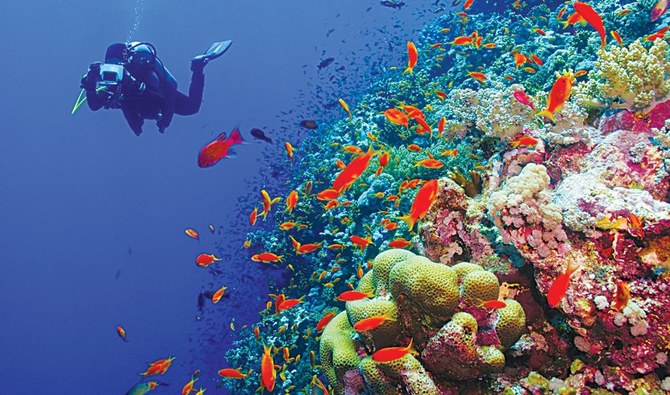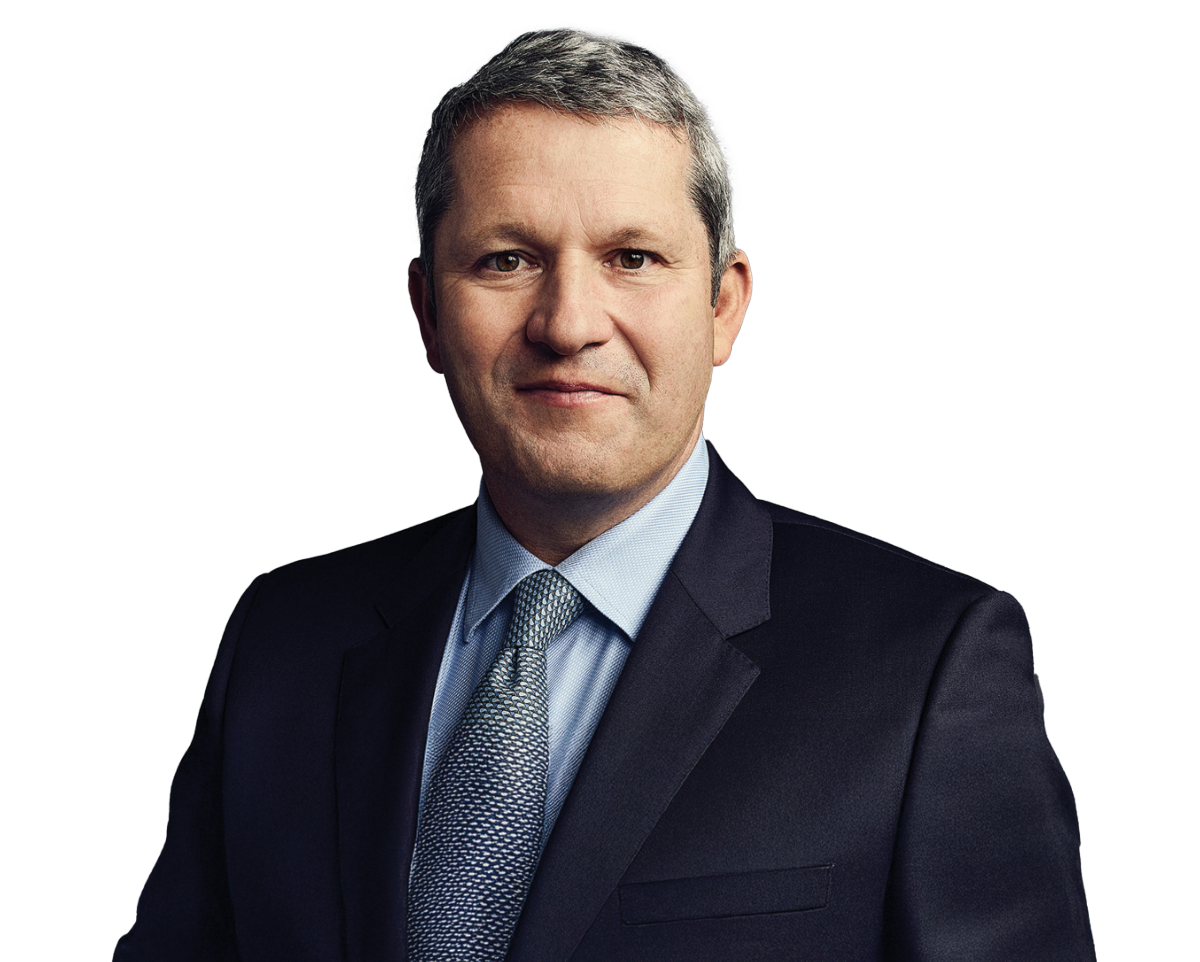The importance of the oceans to the future of our planet has never been as clear as it is today. The UN has declared 2021 the start of a “Decade of Ocean Science for Sustainable Development,” with the aim of sharing knowledge to protect and nurture this extraordinary natural resource for future generations. At Saudi Aramco, we believe that oceans are a shared inheritance: Covering 71 percent of the Earth’s surface, they connect every continent in a global ecosystem that is as complex as it is irreplaceable.
Long-term thinking
Aramco welcomes the UN drawing attention to the importance of marine environments and recognizes the need for action on multiple fronts to protect life and livelihoods. This is why we have long partnerships with scientists, researchers and other experts on a wide range of initiatives — including gathering a wealth of unique data, particularly on the waters of the Red Sea and the Arabian Gulf.
The projects Aramco has launched to protect marine ecosystems are global in scope — with a particular focus on coral-reef regeneration and mangrove restoration. Other projects include protecting endangered marine turtles and cultivating marine algae to absorb CO2 from the atmosphere to reduce the impact of climate change. We have also set up community outreach and education programs to share knowledge with students and children, so they grow up understanding the importance and value of the oceans too.
Gathering data
Behind Aramco’s environmental work lies a valuable resource that we are keen to share with the world: Scientific data. To protect any marine environment, you have first to find out what is there, and we have been monitoring the waters in parts of the Red Sea and the Arabian Gulf region for decades, frequently visiting the same reefs.
Our scientists and experts have been collecting valuable information regarding wave height, currents, dissolved oxygen, water temperature, clarity, salinity and the concentration of chlorophyll, the pigment that provides energy for photosynthesis. Aramco wants to help the global scientific community by giving free access to this data to support other environmental projects, and we are already partnering with several international organizations, such as the C4IR Ocean and its Ocean Data Platform, to further this aim.
Regenerating coral reefs
In terms of our projects, we have supported the regeneration of endangered coral reefs. Around the world, these precious and fragile ecosystems — which provide a habitat for hundreds of marine species while also forming a natural barrier against coastal erosion —have become degraded. This damage has multiple causes, including coastal and offshore development, illegal fishing practices, pollution, and the rise in sea temperatures caused by climate change.
Recognizing the seriousness of the problem, Aramco took action through a series of initiatives in the Arabian Gulf, Florida, Hawaii, American Samoa, and the Caribbean. In the Arabian Gulf, for example, most coral communities are in the vicinity of offshore islands, and we realized one of the factors preventing damaged reefs from regenerating was a lack of hard ground on which the coral could reform. We, therefore, designed and built a series of strong and stable artificial reef structures on the seabed, which the coral could then recolonize, providing a new habitat for a wide variety of marine organisms. Our scientists closely monitor these regenerated reefs, which have been a great success: fish are thriving and the variety of marine life has increased, while the reefs are more resilient.
Seeding mangroves
A second area in which Aramco is playing a prominent role is the planting of millions of mangrove trees in coastal regions. Restoring degraded mangrove forests in this way has great benefits for both biodiversity and carbon capture, through which trees and plants extract and store CO2 from the atmosphere. Research shows that mangrove trees are about five times more effective at sequestering CO2 than terrestrial rainforest trees, making them an effective nature-based solution for combatting climate change. We know these projects are having a significant impact and, building on this success, Aramco aims to plant more mangrove trees in Saudi Arabia and around the world, in partnership with global leaders, through projects in South East Asia, Australasia, South America, the Caribbean, East Africa, and South Asia. It is a truly global undertaking.
Commitment to environment
Aramco also recently developed a new corporate biodiversity protection policy, which requires that all new Aramco projects have a net positive impact on biodiversity and natural ecosystems. The great benefit of this approach is that the diversity of living things in any area in which Aramco is operating — whether terrestrial, coastal, or marine — is taken into consideration before any new project can begin. If a negative impact on biodiversity is identified, then it must be avoided, mitigated, or offset as a last resort. This environmental approach is now mandatory across all our projects and operations.
The company’s first environmental protection policy was introduced as long ago as 1964 and we recently published a book documenting The Ecosystem and Biodiversity of the Arabian Gulf, summarizing 50 years of scientific research between Aramco and King Fahd University of Petroleum and Minerals. Our recently published Marine Atlas of the Western Arabian Gulf provides a baseline of marine ecosystems and their locations. Both books illustrate the beauty and biodiversity of the Arabian Gulf’s marine ecosystems, their sensitivities and vulnerabilities. Our environmental partners include global organizations, regional working groups and local universities, such as KFUPM and the King Abdullah University of Science and Technology.
Our commitment to the world’s oceans is clear: We intend to protect and support them with care, investment and expertise; always working to ensure that Aramco operations don’t adversely impact the marine environment, and enhancing it wherever we can.
- Dr Khaled Asfahani is head of Marine Environment Protection at Aramco & Dr Loughland is an environment consultant at Aramco.





























